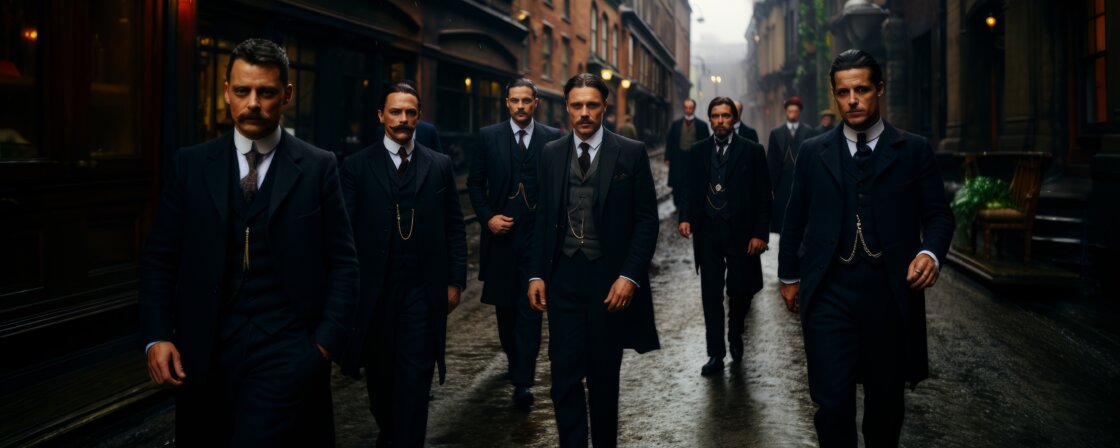Definition of organised crime
Organised crime has no single definition. Often the characteristics associated with it are used to identify it. At the international level, however, we can use the definition of the United Nations Office on Drugs and Crime. This says that organised crime is a long-term criminal group that works rationally to profit from illegal activities that are often in high demand by the public. Its continued existence is sustained by the corruption of public officials and the use of intimidation, threats or force to protect illegal activities.
Are you solving a similar problem?
Have you been a victim or witness to a crime?
Are you considering filing a criminal complaint? We can advise you on how to proceed. We’ll protect your rights quickly, efficiently and cost-effectively.
I want to help
- When you order, you know what you will get and how much it will cost.
- We handle everything online or in person at one of our 6 offices.
- We handle 8 out of 10 requests within 2 working days.
- We have specialists for every field of law.
In any case, organised crime has certain basic features that distinguish it from other types of crime:
- Collective involvement: organised crime involves multiple individuals who organise themselves into groups or networks with clearly defined roles and responsibilities.
- Structure and hierarchy: Organised crime operates according to a clearly defined hierarchy and structure. There are different levels within it, from leaders to junior members, who have specific roles and responsibilities.
- Seeking financial or other benefits: Organised crime aims to achieve economic or political benefits for group members. These benefits may include financial gains, control of a particular market (e.g. the drug market), political influence or protection from competition and prosecution.
- Specialisation and diversity of activities: Organised crime groups often specialise in certain types of crime, such as drug trafficking, arms trafficking, human trafficking, money laundering, fraud, and others.
- Persistence and systematicity: Organised crime is always a continuous and recurrent activity. Groups systematically carry out their illegal activities with long-term strategies and plans.
- Corruption and infiltration: Organised crime often uses corruption and infiltration of state and other institutions (e.g. police or judiciary) to protect its operations and gain advantageous information.
- International dimension: Many organised groups cross national borders and operate internationally. This global dimension includes international drug trafficking, arms trafficking, human trafficking and other illicit activities.
- Violence and intimidation: Organised groups use violence, intimidation and blackmail to achieve their goals, both against their competitors and against victims or witnesses.
History of organised crime
Organised crime has its roots in the history of ancient civilisations, where the first forms of organised cooperation for the purpose of illegal trade, robbery and control of certain territories emerged. Specific examples include bandits who ambushed travellers or pirates who plundered coastlines
Organised crime flourished in the nineteenth century, particularly in England and the USA. At this time, so-called families or gangs were formed and engaged in various illegal activities. Among the best known of these were the Birmingham gangs, whose main interests were gambling, robbery and violence.
Tip for article
Tip: If you’re interested in the subject of organised crime, then you shouldn’t miss the successful series Gangs of Birmingham.
In the same century, organised groups known as the Mafia, which originated mainly in southern Italy, also began to form. The Mafia gradually spread to other parts of Europe and to the United States, where it gained considerable influence in areas such as the alcohol trade during Prohibition, gambling and drug dealing.
After World War II, organised crime became more globalised. Transnational organised groups began to emerge, specialising in drug trafficking, human trafficking, arms trafficking and other illegal activities. Today, organised crime encompasses diverse activities around the world and uses modern technology and business methods to maximise its profits and minimise its risks.
Types of organised crime
There are many types of organised crime, each targeting different illegal activities and with specific characteristics and structures. The main types of organised crime include:
- Drug trafficking: Organised groups specialise in the production, distribution and sale of illicit drugs such as cocaine, heroin and methamphetamines. This type of organised crime usually goes hand in hand with international trade and high profits.
- Trafficking in human beings: Organised crime groups carry out illegal trafficking in human beings, including sexual exploitation, forced labour and organ trafficking.
- Weapons and ammunition: Groups engage in the trafficking of weapons and ammunition, which are often used to further commit crimes.
- Money laundering: Organised crime often uses various methods to launder money from illegal activities to make them appear as legitimate profits.
Tip for article
Tip: Did you know that you can commit money laundering unknowingly? Find out more in our article.
- Cybercrime: With the rise of the internet, organised crime has expanded into the cyber domain. Attacks on information systems, identity theft, cyber espionage and extortion are emerging.
- Fraud and financial manipulation: These organised crime groups carry out various forms of fraud, including insurance fraud, financial fraud and credit card fraud.
- Gambling and betting: This type of organised crime involves illegal betting, including fixing sports matches and manipulating gambling results.
- Extremist groups: These organisations target political and religious targets, including terrorist organisations.
Tip for article
The co-accused: how does co-operation work and when does it pay? Find out in the next article.
Structure of organised crime
Criminal organised groups usually have a vertical hierarchical structure. Let’s take a look at what this might look like in practice, using the classic Italian-American Mafia as an example :
Boss
- There is one and he is the highest authority in the organization.
- He controls the strategic decision-making and direction of the organization.
- He has control over all operations and profits.
- He often tries to minimize his visibility and risk of detection.
Underbosses
- Work closely with the boss.
- They may be in charge of certain geographic areas or specific types of crime.
- They carry out the boss’s instructions and ensure that they are implemented at a lower level.
Captains
- They lead smaller groups (called crew or caporegime).
- They are responsible for specific operations and the execution of crimes.
- They have soldiers and other group members under them.
Soldiers
- The core members of the organization who directly carry out assigned tasks (crimes).
- They are subordinate to the captains and carry out their instructions.
Associates
- Persons who work with the organization on an informal basis.
- They tend to be used to perform specific tasks but do not have full membership in the organization.
- They include, for example, business partners, service providers or people involved in illegal activities on a short-term basis.
Summary
Organized crime is a complex and global phenomenon that transcends national borders and encompasses a variety of illegal activities such as drug trafficking, arms trafficking, human trafficking, money laundering and cybercrime. The basic characteristics of organised crime are collective involvement, hierarchical structure, economic or political objectives, specialisation in criminal activities, permanence, systematicity, corruption, infiltration of institutions and international reach.
Organised crime often relies on violence and intimidation to achieve its goals. Historically, it has its roots in ancient civilizations, but its modern form took shape primarily in the 19th and 20th centuries, with prominent groups such as the Italian Mafia and American gangs. The structure of organized crime is hierarchical, with clearly defined roles from bosses to soldiers and associates.




